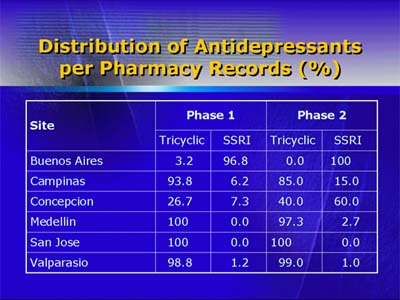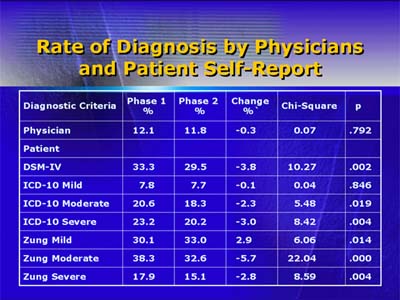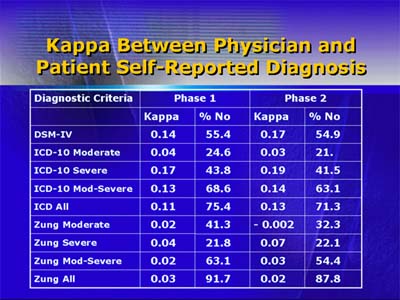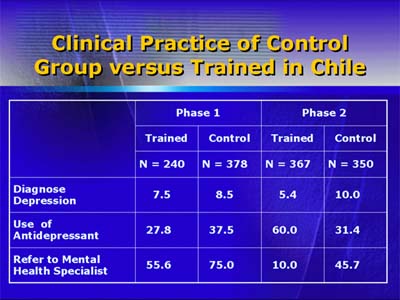Dr. Kohn opened with the question, "Can you train primary care physicians to diagnose and treat major depression?"
His answer came from a World Health Organization study conducted in five Latin American countries with 98 primary care physicians and over 3000 of their patients.
An additional 10 primary care physicians served as controls who completed pre- and post-study checks, but did not receive training.

The first study phase assessed clinical practice, knowledge, and attitudes among primary care physicians by asking them to complete a depression checklist for all patients aged 15 years and older.
The physicians reported all diagnoses of major depression, along with their knowledge and attitudes about depression.
Physician reports were independent of patients, and physicians were blinded to results from patients.
Patients were asked to complete the DSM-IV / ICD-10 symptom checklist and a Zung Depression scale.

One month later, the physicians received the World Psychiatric Association training module on depression, which focused on diagnosis and treatment.
One month afterward, both physicians and patients were re-evaluated using the same methods.
The results indicate that the training program was effective in improving physician knowledge of major depression.
Trained physicians were better able to diagnose major depression in clinical vignettes.
Attitude feedback indicated trained physicians were able to differentiate between sadness and major depression, felt more comfortable addressing problems of depressed patients, agreed that antidepressants were helpful in treating major depression, and felt more confident administering antidepressants.

However, because the rate of diagnosis did not change, there was little evidence that training had an effect on clinical practice.
When asked, primary care physicians indicated that lack of time and education were the primary barriers to treating major depression.
Dr. Kohn explained that because mental health specialists are largely confined to urban areas in Latin America, the ability of primary care physicians to diagnose and treat major depression is especially important.
The evidence suggests that a continuing education model is largely ineffective for changing practice patterns among primary care physicians caring for patients with major depression.
Dr. Kohn noted this study focused on established primary care physicians, whereas future study may focus on residents in primary care training programs.
